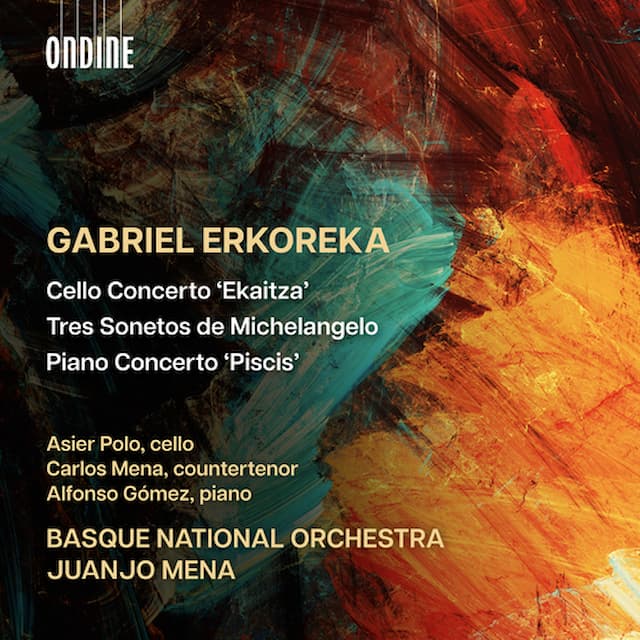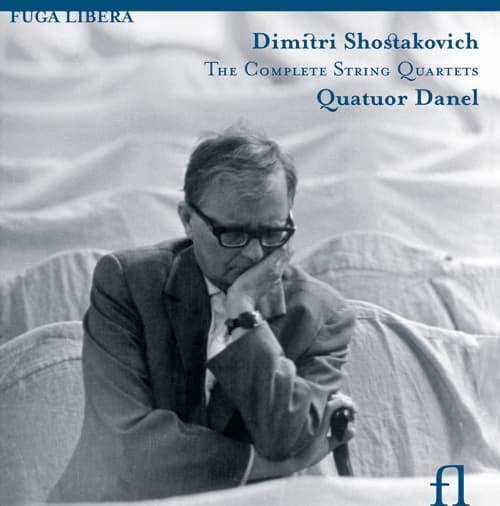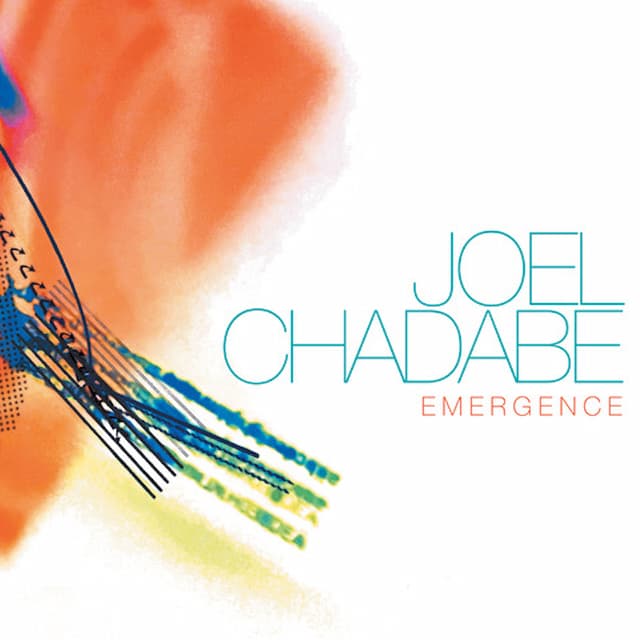Cellist Roger Morelló Ros pays homage to Pau Casals with his new album The Voice of Casals. Pablo (Pau) Casals (1876-1973), arguably the person who propelled the cello to prominence, was one of the most renowned performers of the 20th century. Cellist, orchestra conductor, teacher, and composer, the first to discover and promote the Six Solo Cello Suites by J.S. Bach, Casals has left us with an outstanding legacy. A staunch advocate for world peace, his refusal to play in Soviet Russia, in Germany in 1933, and in Franco’s Spain brought attention to the struggle for justice and freedom of societies from across the globe. Casals performed countless benefit concerts for refugees of the Spanish Civil War and for victims of the Second World War.
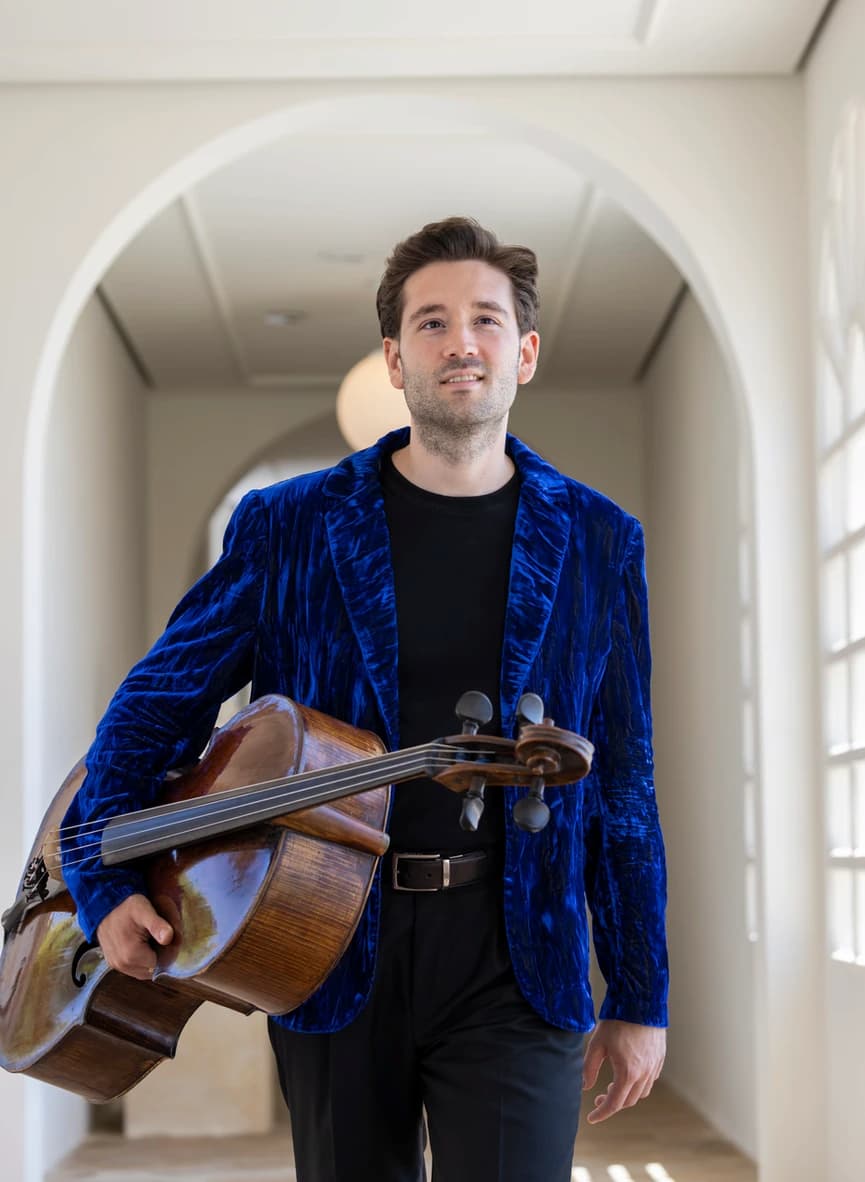
Roger Morelló Ros © Pau Fabregat
Both Casals and Morelló Ros originate from Catalan. Morelló Ros was born there in 1993. He believes that the cello can communicate ideas transcending the musical sphere, and his projects have a message, as does the album. Recently released by Ibs Classical and recorded by the German radio SWR (Südwestrundfunk), it includes Morelló Ros’s arrangement of Les Voix Humaines by Marin Marais, two commissioned compositions, the Gaspar Cassadó Suite for Cello Solo, some movements of solo Bach, and works based on Catalan folklore.
The album begins with a wonderful piece by Catalan composer and cellist Gaspar Cassadó. The Suite for Cello Solo is performed frequently and loved by cellists. Cassadó was a student of Casals, but their relationship suffered when Cassadó continued to perform in Spain while Casals went into self-imposed exile. Cassadó was a prolific composer, yet many of his works, some say over 60 pieces, have never been performed. Cassadó’s wife Chieko Hara, a pianist, left her husband’s papers to a Japanese University where many compositions are still mysteriously buried.
Gaspar Cassadó: Suite for Cello Solo – III. Intermezzo e danza finale (Roger Morelló Ros, cello)
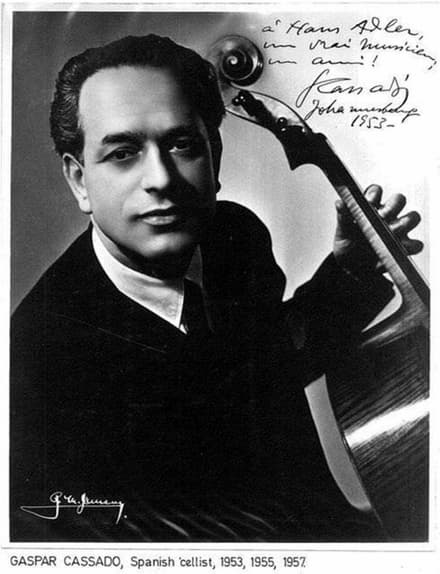
Gaspar Cassadó
The suite is a captivating and virtuoso work in three movements: Preludio-Fantasia, Sardana-Danza, Intermezzo e Danza Finale. Morelló Ros’s passionate playing, Catalan flair, and rich and colorful sound are suited to this piece. He knows this piece well. In this rendition, he takes generous rhythmic liberties, but in the excellent live performance in 2020, the playing is slightly more straightforward. Which do you prefer? Artists are never stagnant, and it’s likely that Morelló Ros’s interpretation has developed since 2020 while taking into account that in a live performance, there is more at stake as one cannot repeat passages or re-record segments!
Cassado Suite 2020 performance
Les Voix Humaines by Marin Marais is beautifully arranged for cello. The plaintive and introverted quality is highlighted with non-vibrato playing as if imitating a viol or a Baroque instrument.
Marin Marais: Pièces de Viole, Book 2: No. 63. Les voix humaines (Roger Morelló Ros, cello)
Casals’ compositions include an oratorio El Pessebre, Hymn to the United Nations, and chamber music, religious music, and songs. His arrangement of Song of the Birds, a traditional Catalan carol and lullaby for which he is well known, is on this album. First, listen to a video of Casals performing the work at the United Nations in 1971. Casals hadn’t played in public for 40 years, and his introduction is moving, “The birds in the sky sing, ‘Peace, peace, peace…It is the soul of my country, Catalonia.” Casals plays the piece contemplatively and with infinite yearning.
Pau Casals: Song of the Birds
Roger Morelló Ros takes his time in this performance. His warm sound is very expressive, and the performance is a more romantic interpretation.
Pablo Casals: El cant dels ocells (Song of the Birds) (version for cello solo) (Roger Morelló Ros, cello)
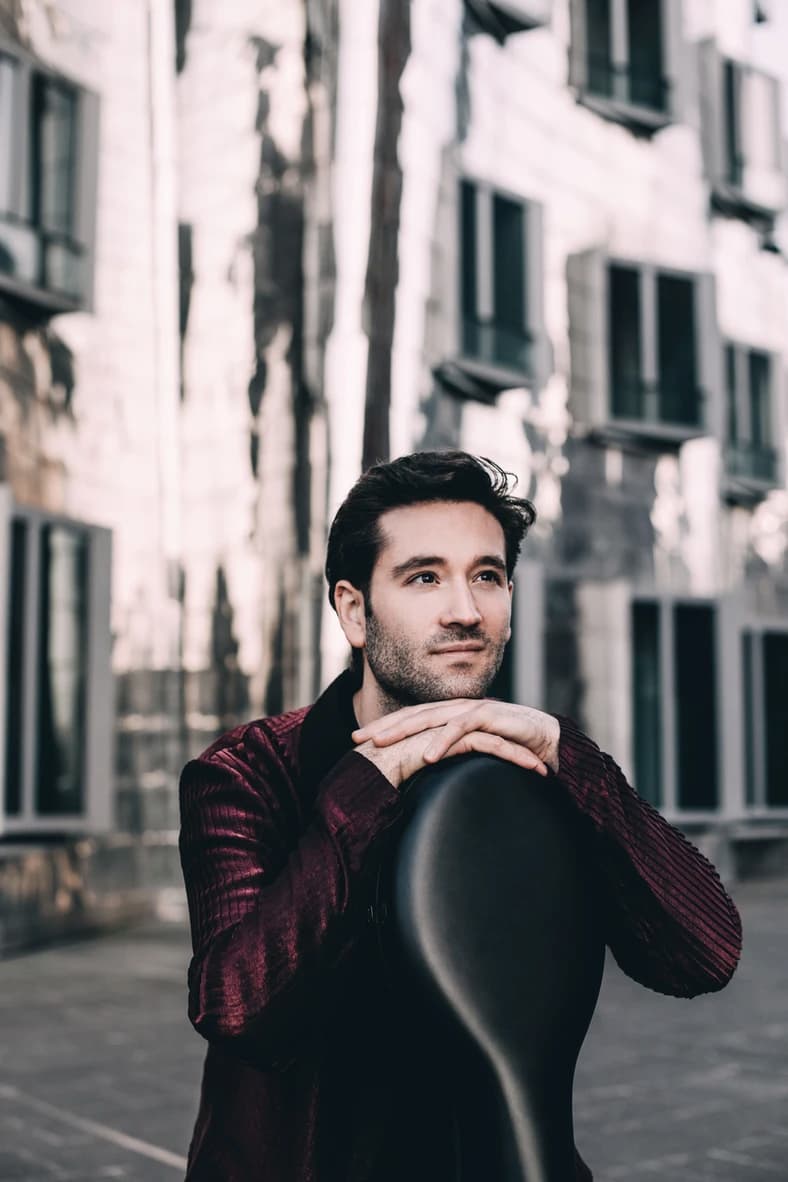
© Sihoo KIm
Milontan by José Bragato with pianist Alicia Koyama Müller begins as an enchanting song with Piazzolla-like melodies, heartrending and melodious. The piece then transitions into an infectious tango. The melancholy opening melody returns in harmonics, and the performers fade out beautifully. Tango is in Morelló Ros’s blood, as you can see in this performance of Tango Para Ilaria, another tango for solo cello composed by the New York Philharmonic principal cello Carter Brey. Vigorous, vibrant, and brilliant playing.
Carter Brey’s Tango para Ilaria
Two contemporary works on the album were commissioned by and dedicated to Morelló Ros. Elisenda Fábregas’ four-movement work Danse de la Terre and the Variations on the name of Casals by Marc Migó. Both composers include a Sardana, a traditional Catalan dance normally danced in a circle that follows a pre-rehearsed set of steps and represents brotherhood and liberty.
Catalan/Spanish/American composer Ms. Fábregas is currently a resident composer at the Palau de la Musica Catalana in Barcelona for the 2023-24 season, and she has a multifaceted career as a composer, pianist, and lecturer. The movements, Ball D’entrada (opening dance), Dansa de Rondalla amorosa (dance of amorous tale), Ball ceremonial de purificació (ceremonial dance of purification), and Records de sardana (memories of sardana) harken back to popular Catalonian songs and dances. Morelló Ros plays these with panache.
Elisenda Fábregas: Danses de la terra – No. 4. Records de sardana (Memories of sardana)
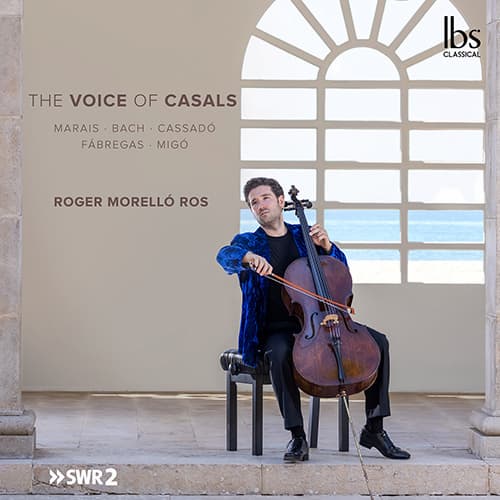
Variations on the name of Casals by Marc Migó consist of two parts: a Prelude and a Sardana. Interspersed are several musical quotations. Some are popular Catalonian themes; others are allusions to works that Casals conducted and played, such as Ludwig van Beethoven’s Symphony No. 7, the Cassadó Suite, and Bach, evident in the Prelude movement. This work is, I would say, more contemporary in style. The composer uses techniques such as ricochet (dropping the bow so that it bounces), col legno, and difficult double stops and chords (two and three notes together). The technical challenges are no obstacle for Morelló Ros, and with effortless and bravura playing he brings the Variations to life. Both works are welcome additions to the cello solo repertoire.
Marc Migó: Variacions sobre el nom de Casals – I. Prelude (Roger Morelló Ros, cello)
The Voice of Casals is a delightful album that introduces the great cellist to young generations. It’s only fitting to leave you with just one of Casals’ profound quotes,
“Love for one’s own country is natural. But why should we stop at the border?
We are all leaves for the same tree, and the tree is Humanity.”
For more of the best in classical music, sign up for our E-Newsletter

